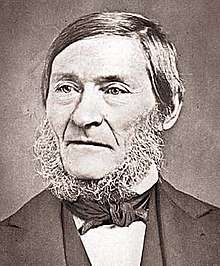Ole Gabriel Ueland
Ole Gabriel Ueland (28 October 1799 – 9 January 1870) was a Norwegian political leader and member of the Norwegian Parliament[1] (1833–1869). Historians credit him with having popularized politics in rural Norway, paving the way for individuals of limited backgrounds to rise to positions of political importance.[2][3]
| Ole Gabriel Ueland | |
|---|---|
 | |
| Born | 28 October 1799 Lund |
| Died | 9 January 1870 Oslo |
| Occupation | Politician, teacher |
| Position held | member of the Parliament of Norway (1833–1835), member of the Parliament of Norway (1836–1838), member of the Parliament of Norway (1839–1841), member of the Parliament of Norway (1842–1844), member of the Parliament of Norway (1845–1847), member of the Parliament of Norway (1848–1850), member of the Parliament of Norway (1851–1853), member of the Parliament of Norway (1854–1856), member of the Parliament of Norway (1857–1858), member of the Parliament of Norway (1859–1861), member of the Parliament of Norway (1862–1864), member of the Parliament of Norway (1865–1867), member of the Parliament of Norway (1868–1870) |
Ueland was the son of Gabriel Osmundsen (1760–1843) and his wife Ingeborg Osmundsdatter Skaaland (1764–1816). Ueland was born on the Skåland farm in Lund parish in Rogaland, Norway. Ueland was raised in the traditional district of Dalane, a region characterized by small farms and an environment influenced by the Haugean Movement (haugianere).[4]
Although his formal education had been limited to random local lessons, he had proven an unusual aptitude for learning and an appetite for reading. From 1817 until 1825, Ueland was a schoolteacher in Lund parish. He had by way of marriage acquired the Uelnd farm (Ueland i Heskestad). By 1827, he was installed as the sexton in the local church at Heskestad in Lund parish. From 1827 to 1852 he was a teacher in Heskestad, before he became sheriff (1852–1856).[5]
He was elected to the Norwegian Parliament in 1833, representing the rural constituency of Stavanger Amt (now Rogaland). He remained a parliament member until 1869, having been re-elected thirteen times.[6] He became the leader for the peasant and farmer's movement in politics and earned respect for his deliberate and wise political outlook.
Bjørnstjerne Bjørnson wrote of him:
- Though he is a farmer behind his plough
- and a sailor in his boat
- he thought as well as anyone
- in all the King's council
- When he met in parliament
- to promote the cause of farmers
- every word gave birth to a ray
- in the people's young day .[7]
References
- "Ole Gabriel Gabrielson Ueland". Encyclopedia Britannica.
- "Ole Gabriel Ueland". Store norske leksikon. Retrieved June 10, 2016.
- "The Scandinavian Heritage: The Haugeans at Eidsvoll". The Pilot-Independent (Walker, MN). Retrieved June 15, 2016.
- Hallgeir Elstad. "haugianere". Store norske leksikon. Retrieved June 15, 2016.
- Åsmund Svendsen. "Ole Gabriel Ueland". Norsk biografisk leksikon. Retrieved June 10, 2016.
- Ole Gabriel Gabrielsen Ueland — Norwegian Social Science Data Services (NSD)
- Poems and songs: by Bjornstjerne Bjornson